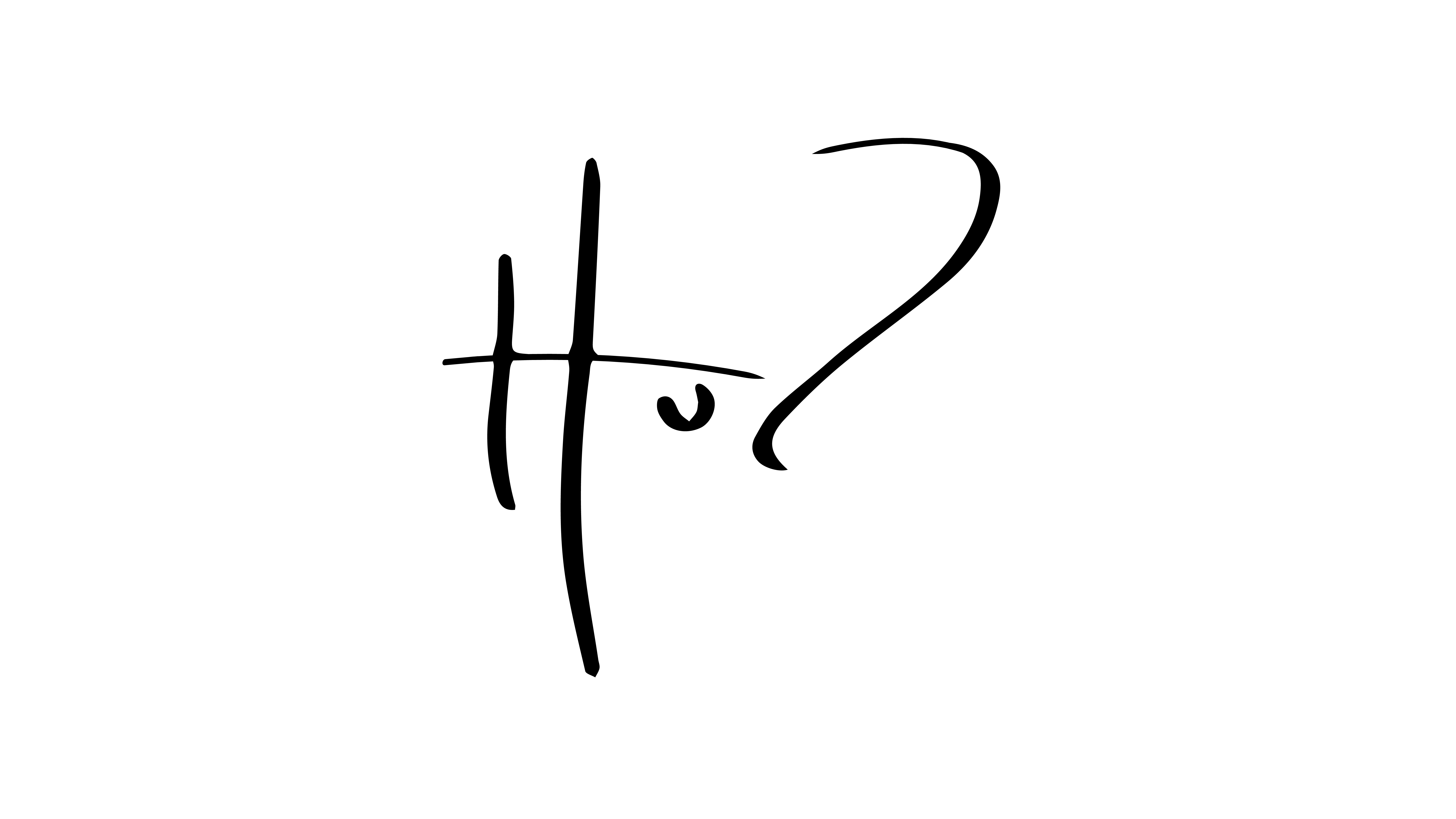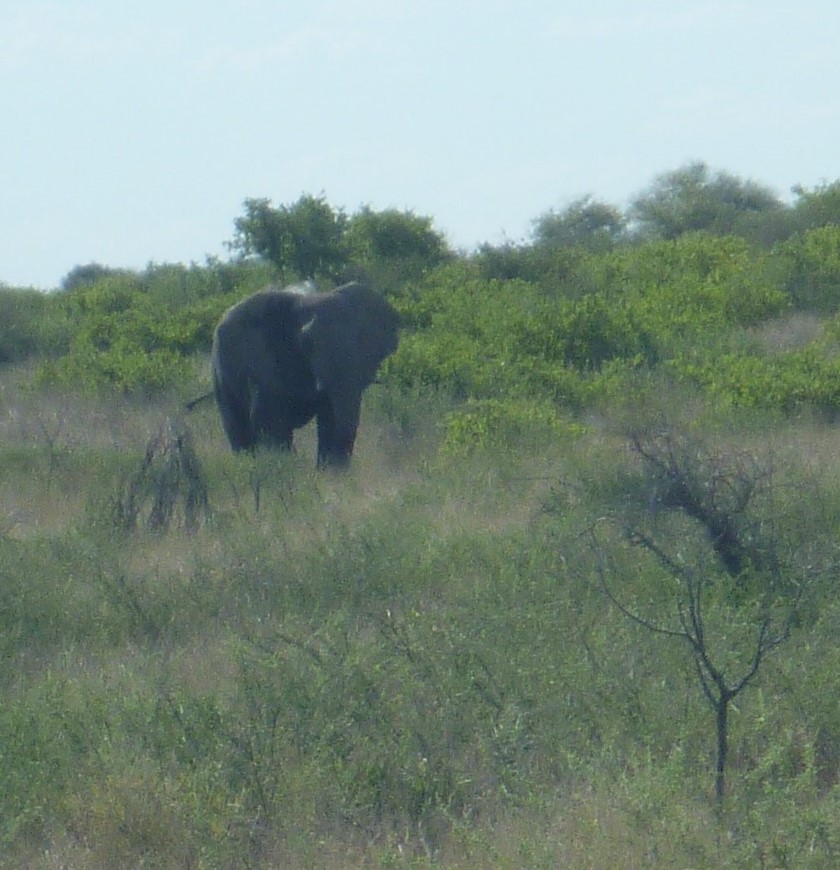The sun had slipped behind the treetops. There was about an hour or so of light left to prepare for the night.
Four bull elephants lumbered past, heading back along the game path from the water hole just over the rise. They were a hundred or so paces away and they seemed quite clear on where they were going and paying no attention to me and my camp fiddling; me, intent on my preparations, gave their nodding silhouettes no more than the occasional interested glance – that is, until a youngster of about fifteen or so broke away and came towards me, but slightly at an angle.
He had his head a little high and his ears forward and he was moving at a half-run. These were all the wrong signs. It wasn’t looking good. Young males like that can be cheeky and even nasty, sometimes. They are still learning good etiquette from their older companions in the bull herd.
I considered moving behind the vehicle, but that wouldn’t do much to protect my stuff – I had half my gear unpacked for the night and I had strung my hammock from the vehicle’s bull bar to a convenient tree. I couldn’t drive off without creating quite a bit of havoc with my equipment. I miraculously thought of taking a quick snap (a little out of focus under the circumstances) while he was still about sixty paces away. I was already feeling a bit uncomfortable about his intentions, thinking that I should chuck the camera and get my bullwhip from the cab – I take along a bullwhip to discourage over-brazen predators and dangerous ungulates. It is good companion in camp at night and on walks, if one doesn’t have a rifle.
He was now too close for me to do anything anyway. I watched his ears and his trunk. His head was up and his trunk wasn’t folded back. His ears were like black sheets in the wind. Chances were he was just showing off and would turn away, but one couldn’t be sure. I stood dead still, thinking “Young man, you have the head size to be a large bull one day, but your tusks are a bit light to make it as a major tusker.” These were typical irrelevant flashes that mingle with “Is he going to charge or just mock charge?” in such moments of danger, when things go into slow motion and everything distils into the singularity of the threat.
At about thirty paces he abruptly swung straight at me! “He’s just a youngster and he hadn’t folded back his ears or lowered his head. Just stand dead still.” But I felt myself shrink until I was the size of an orange – and as crushable. But strangely, I felt no fear, only acute awareness of the tumbling juggernaut.
Then, at about fifteen paces, he abruptly stopped. Dust and clods of earth flew forward as he braked! He towered over me with trunk in the air and shook his head, sending more dust billowing, and trumpeted so that the earth trembled! He stood for a moment, tossing his head. I felt as if his breath was burning my face! Then he turned to my left and ran across my front with his tail straight out and his head high and slightly tilted towards me. One eye was cocked at me if to say, “Let this be a warning human. You might hear from me again!” He re-joined his companions, falling in at the rear with an attitude of “did you see how I scared the S*** out of that little human?” but they didn’t show the slightest reaction; just kept striding on. I lurched to the vehicle and half-collapsed onto the open tail gate.
I was a bit shaken by the incident. Not by the danger, for danger in the African wilderness is as omnipresent and as sudden as a francolin that bursts into the air from under your feet, but by the thoughts it stirred. This was not my doing, but I don’t like getting into this kind of situation with wild animals. In fact, I try not to get to where they might in any way react to my presence, and certainly not into their personal space. So, perhaps I should have made my camp even further away from that game path – I knew about it from crossing it on my afternoon walk, and that it was trodden wide and had lots of elephant tracks in both directions on it, but I thought that about a hundred paces would be far enough, and, there was the problem of finding a suitable tree with a big and dense enough canopy to keep the dew off me during the night…
That night I lay awake for a long time, just listening to the night and thinking about the incident. It was actually a quiet night, with only the simmer of crickets; one lost cicada started to chirr uncertainly, but then stopped, like a single philistine applauding at the wrong point in a classical performance. Then came a soft rumbling sound; not a hard-impact sound like the drumming of thousands of hooves, softer, more rounded, but powerful, like a giant waterfall at a distance. It was the wind approaching through the trees. It had not yet reached me, but soon I could feel its touch on my face. It stayed for only a few minutes before it left towards the north-west and disappeared – some arcane local re-balance of pressures, would be the unpoetic explanation.
I thought, these are all such gentle sounds, but if a lion would roar now, or an elephant would unleash its mighty trumpet, or thunder would rumble, it would still not sound out of place, even though the sounds would be immensely more powerful.
But if got up and took the kettle from the container and filled it and lit the gas stove, even though the sounds would be tiny, they would be jarring to the ambiance. They were unnatural – the tinging of metal against metal, the dumb thump of plastic against plastic or metal against plastic, the hiss of the gas flame…
The objects that made them came originally from materials that are natural to this environment, but they have been processed so far and into such different shapes that they have become alien here; their sounds, their shapes, their textures, their smells.
I wondered, what does sensing Nature think about the shapes, the sounds and the smells that we bring to Her when we sensitively (in our perception) tour her wonders? I scribbled in my diary:
Did I, as a “civilised,” with my needs and my desires, though believed by myself to be sensitively exercised, fit insidiously here, even at this scale? Do I, in the words of Sylvia Plath, only fit into this world when I am sleeping? Is my conscious presence here an imposition that relies on superior intelligence, techne and force to compel acquiescence, and is it experienced by all around me as a menace, or at the very least a nuisance that must be borne with as much fortitude as can be mustered – fortitude that sometimes explodes into impatience or irritation or aggression? Am I really no different from my fellow “civiliseds” that I perceive to fit so awkwardly here, tinned and bottled in their vehicles; the forerunners of more, and more and more, until the wilderness shrinks into little patches here and there, each rendered to meet the needs of the tourists who pay to be “out in the wild?”
Is this really our story since the origins of our species, when we had flint-tipped spears and stone axes and all the others did not? It is like two worlds growing ever more alien to one another. Can they exist side by side, or is it inevitable that we will eventually consume Nature – or will She simply one day wipe us from the slate without even a shrug, and start again, as She had done, what, five times before?
Nature is not without impacts. Volcanoes and storms and veld fires destroy, climate change happens, droughts bring immense suffering, trees are left maimed by elephant, one animal kills the other, overpopulation and invasion happen, dominance pushes other species into oblivion and often leads to self-destruction of the dominant. But it all seems to be governed by a common set of rehabilitating laws.
We seem to have changed this self-balancing dynamic. We have discovered how to pervert the laws, point things in new directions. We are intoxicated by our success and its ever-growing fecundity, but we do not understand what terrible remedies will be required to sustain us where we are leading ourselves…
It is not a comfortable evening.

